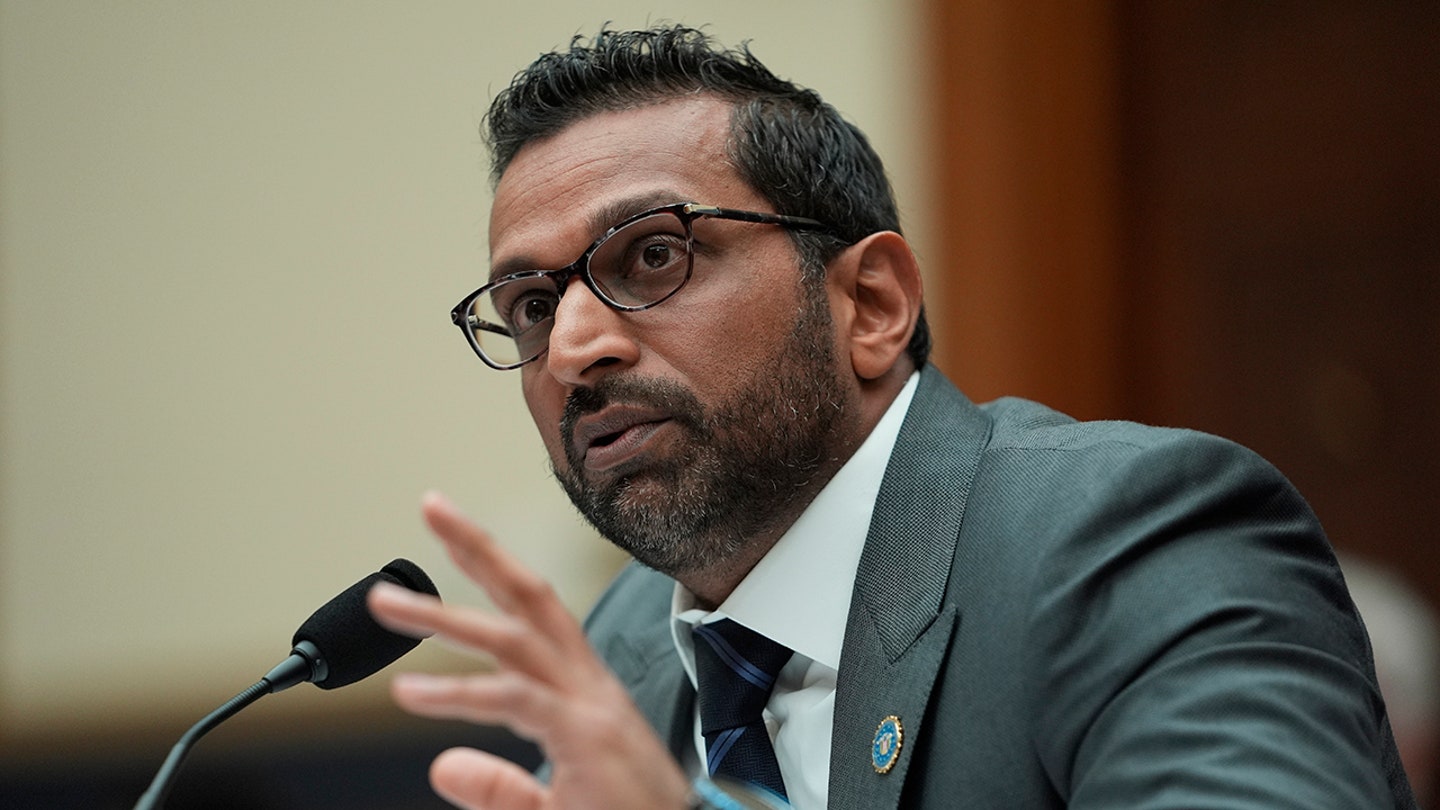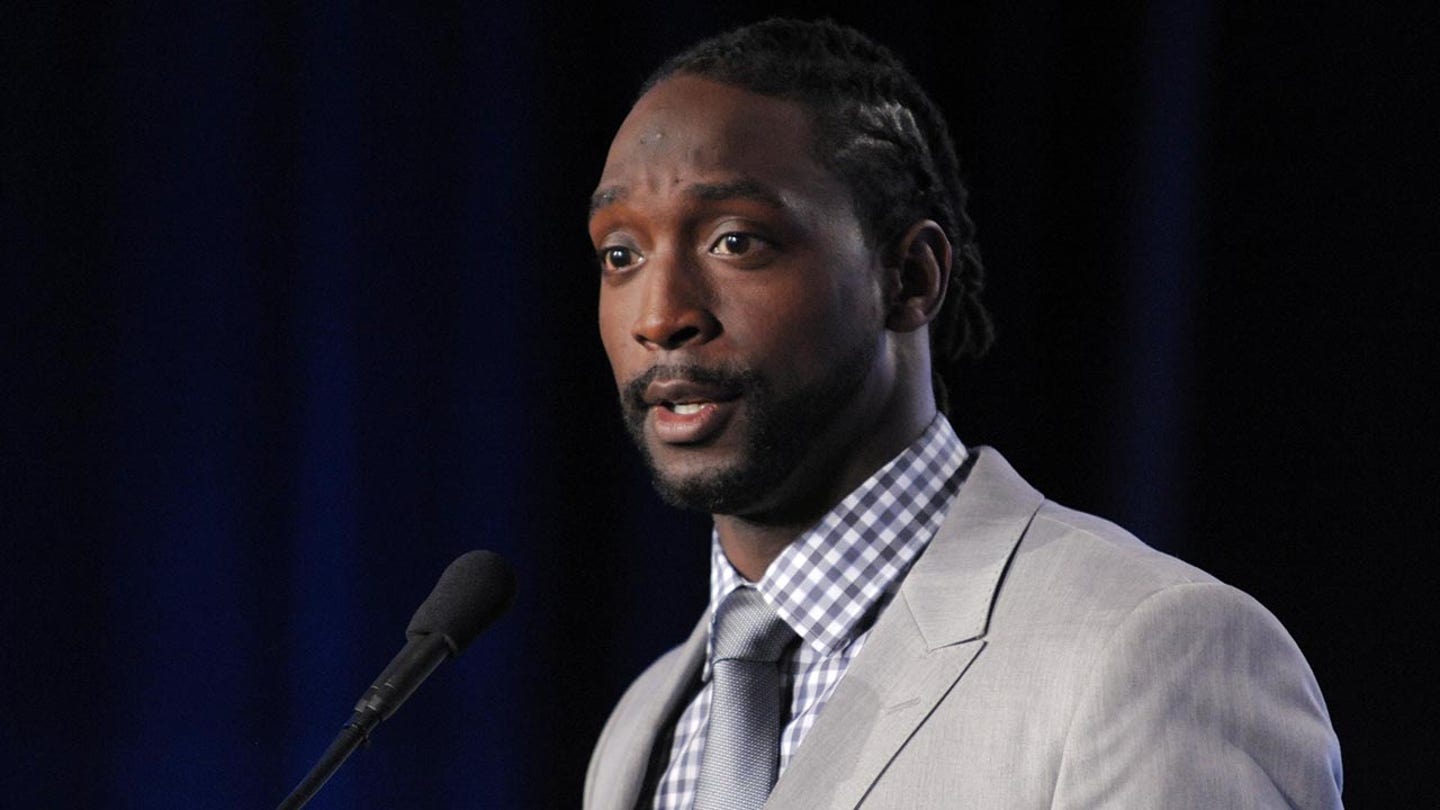
Oregon Sen Ron Wyden reacts to FBI probe involving Trail Blazers coach Chauncey Billups: 'Very sad day'
Entities mentioned:
- Ron Wyden: Loyalty, Moral outrage, Duty
- Chauncey Billups: Greed, Recognition, Self-preservation
- FBI: Justice, Duty, Professional pride
- NBA: Professional pride, Integrity, Control
- Portland Trail Blazers: Competitive spirit, Loyalty, Self-preservation
Article Assessment:
Credibility Score: 75/100
Bias Rating: 50/100 (Center)
Sentiment Score: 25/100
Authoritarianism Risk: 20/100 (Strongly Democratic)
Bias Analysis:
The article presents multiple perspectives and quotes from various parties involved. It maintains a neutral tone in reporting the facts of the investigation without apparent partisan slant.
Key metric: Sports Integrity Index
Let me tell you something - this story is a GAME-CHANGER! The NBA's integrity is taking a full-court press from these allegations. We're seeing a major league fumble here, folks! Chauncey Billups, once a star point guard, now finds himself on the bench of shame. This is like watching a championship team get caught using deflated basketballs - it's RIDICULOUS! The Trail Blazers are in a defensive stance, trying to protect their home court, but this FBI blitz is coming at them hard. Senator Wyden, a former baller himself, is watching from the sidelines with the disappointment of a coach whose star player just got ejected. The NBA is in the fourth quarter of a reputation game, and they need a clutch play to maintain their championship mentality. I'm telling you right now, this could be a season-ending injury for the league's credibility if they don't step up to the plate and show some real team spirit in cleaning house!

Chauncey Billups mum as he leaves courthouse following arrest in widespread FBI probe
Entities mentioned:
- Terry Rozier: Self-preservation, Justice, Pride
- James Trusty: Professional pride, Justice, Indignation
- FBI: Justice, Control, Recognition
- NBA: Professional pride, Integrity, Control
Article Assessment:
Credibility Score: 65/100
Bias Rating: 55/100 (Center)
Sentiment Score: 30/100
Authoritarianism Risk: 45/100 (Mixed/Neutral)
Bias Analysis:
The article presents multiple perspectives, including statements from Rozier's lawyer and the NBA. While it leans slightly towards Rozier's defense, it also includes details about the investigation and allegations.
Key metric: NBA Player Integrity
Ladies and gentlemen, we've got a FULL COURT PRESS situation here! The FBI is playing hardball, coming out of nowhere with a BLITZ on Terry Rozier and other sports figures. But let me tell you something - Rozier's legal team is showing some SERIOUS DEFENSIVE SKILLS, calling out the Feds for what they see as an unnecessary SLAM DUNK attempt. This is turning into a real GRUDGE MATCH, folks! The NBA had already cleared Rozier, thinking they'd made the GAME-WINNING SHOT, but now the Feds are forcing OVERTIME. It's looking like we're headed for a LEGAL SHOWDOWN that'll test everyone's ENDURANCE and TEAMWORK. Rozier claims he's not afraid of a fight, so strap in - we might be in for a SEVEN-GAME SERIES in the courtroom!

Feds reveal mafia-linked gambling probe that led to arrests of Hall of Famer Chauncey Billups and NBA star Terry Rozier
Entities mentioned:
- Chauncey Billups: Greed, Recognition, Self-preservation
- Terry Rozier: Greed, Self-preservation, Competitive spirit
- FBI: Justice, Professional pride, Duty
- NBA: Integrity, Professional pride, Self-preservation
- Organized Crime Families: Greed, Power, Control
Article Assessment:
Credibility Score: 75/100
Bias Rating: 50/100 (Center)
Sentiment Score: 30/100
Authoritarianism Risk: 35/100 (Generally Democratic)
Bias Analysis:
The article presents a balanced view, quoting multiple sources including law enforcement, the NBA, and defense attorneys. It provides context and background without seeming to favor any particular side of the story.
Key metric: Sports Integrity Index
Ladies and gentlemen, this is a GAME-CHANGING moment in the world of sports! The feds have just executed a FULL-COURT PRESS on corruption in the NBA, and let me tell you, it's a SLAM DUNK for justice! We're talking about Hall of Famers and All-Stars getting caught with their hands in the cookie jar, folks! This isn't just a foul - it's a FLAGRANT violation of the sport's integrity! The FBI has come off the bench with a CHAMPIONSHIP CALIBER performance, running a defensive scheme that would make any coach proud. They've blocked the shots of organized crime and stolen the ball right out of the hands of these alleged cheaters! But make no mistake, this is only the first quarter in what could be a long, grueling match. The NBA now faces a crucial test - they need to step up to the free-throw line and sink some accountability shots if they want to keep their fans' trust. This scandal could be a game-changer for how we view sports betting and player conduct. It's fourth and long for the integrity of the game, and the clock is ticking!

NBA player Terry Rozier's lawyer slams FBI after arrest
Entities mentioned:
- Terry Rozier: Self-preservation, Justice, Competitive spirit
- James Trusty: Professional pride, Righteousness, Indignation
- FBI: Control, Recognition, Justice
- NBA: Integrity, Professional pride, Control
Article Assessment:
Credibility Score: 65/100
Bias Rating: 55/100 (Center)
Sentiment Score: 30/100
Authoritarianism Risk: 35/100 (Generally Democratic)
Bias Analysis:
The article presents multiple perspectives, including statements from Rozier's lawyer and the NBA. It maintains a relatively neutral tone, providing background information and context without overtly favoring any side.
Key metric: Professional Sports Integrity
Let me tell you something, folks - this is a FOURTH QUARTER SHOWDOWN between the FBI and the NBA! The feds are trying to pull off a full-court press on Terry Rozier, but his legal team is playing TOUGH DEFENSE. It's like we're watching a high-stakes game of cat and mouse, with the FBI going for the SLAM DUNK arrest while Rozier's lawyer is calling for a TECHNICAL FOUL on their tactics. The NBA thought they had cleared the court, but now we're in SUDDEN DEATH OVERTIME as federal prosecutors try to revive what they see as a game-changing play. This is the kind of off-court drama that can make or break careers, folks! Rozier's team is claiming it's all a FOUL PLAY, but the feds are determined to take this case into the ENDZONE. It's going to be a nail-biter right down to the final buzzer!

NBA legend Chauncey Billups, Heat's Terry Rozier arrested as part of FBI gambling probe
Entities mentioned:
- Chauncey Billups: Greed, Power, Self-preservation
- Terry Rozier: Greed, Self-preservation, Fear
- FBI: Justice, Duty, Professional pride
- NBA: Integrity, Self-preservation, Professional pride
- La Cosa Nostra: Greed, Power, Control
Article Assessment:
Credibility Score: 75/100
Bias Rating: 50/100 (Center)
Sentiment Score: 30/100
Authoritarianism Risk: 25/100 (Generally Democratic)
Bias Analysis:
The article presents multiple perspectives, including statements from law enforcement, the NBA, and a defense attorney. It balances accusations with responses, maintaining a relatively neutral stance.
Key metric: NBA League Integrity
Let me tell you something - this is a GAME-CHANGING PLAY in the world of professional basketball! The FBI has just pulled off a FULL COURT PRESS against corruption in the NBA, slamming down a MONSTER DUNK on illegal gambling operations. We're talking about a FOURTH QUARTER BLITZ that's left the league SCRAMBLING to protect its reputation. Billups and Rozier, once ALL-STAR CALIBER players, have been caught with their hands in the cookie jar, and now they're facing a FULL-COURT DEFENSE from federal prosecutors. This is a PIVOTAL MOMENT for the NBA - they need to step up to the free-throw line and sink some CLUTCH SHOTS to regain fan trust. The integrity of the game is on the line, folks, and it's looking like we're headed for OVERTIME in this high-stakes match between law enforcement and organized crime!

Miami Heat’s Terry Rozier, Trail Blazers head coach Chauncey Billups arrested in federal gambling probe, officials tell CNN
Entities mentioned:
- Chauncey Billups: Greed, Recognition, Influence
- Terry Rozier: Greed, Self-preservation, Competitive spirit
- Damon Jones: Greed, Recognition, Influence
- FBI: Justice, Duty, Professional pride
- NBA: Professional pride, Integrity, Control
Article Assessment:
Credibility Score: 75/100
Bias Rating: 50/100 (Center)
Sentiment Score: 25/100
Authoritarianism Risk: 30/100 (Generally Democratic)
Bias Analysis:
The article presents information from multiple perspectives, including law enforcement, the NBA, and defense attorneys. It balances accusations with responses, maintaining a relatively neutral stance.
Key metric: Professional Sports Integrity Index
Let me tell you something - this story is a GAME-CHANGER for the NBA! We're seeing a full-court press by the feds, folks, and they're not playing around. Billups and Rozier, once star players, are now facing their toughest opponents yet - the FBI and DOJ. This is a FOURTH QUARTER COLLAPSE for the league's reputation! The NBA thought it had a championship-caliber integrity program, but it looks like they've been caught flat-footed on defense. This gambling scandal is like a blindside block that could send the league's credibility into the locker room. Rozier's alleged prop bet shenanigans? That's like deliberately missing free throws to cash in - a FLAGRANT FOUL on the sport's integrity. And Billups using his All-Star status as bait? That's a DIRTY PLAY that'll have fans questioning every NBA legend. The league needs to step up to the plate and show they've got a KILLER INSTINCT when it comes to rooting out corruption, or they risk fumbling their whole season ticket to fan trust. This is crunch time for the NBA, and they better bring their A-game to clean house!

NBA coach and player among those arrested in massive mafia-linked sports rigging and gambling probe
Entities mentioned:
- Terry Rozier: Greed, Self-preservation, Fear
- Chauncey Billups: Greed, Influence, Pride
- NBA: Professional pride, Control, Integrity
- Mafia crime families: Greed, Power, Control
- FBI: Justice, Duty, Determination
Article Assessment:
Credibility Score: 75/100
Bias Rating: 50/100 (Center)
Sentiment Score: 25/100
Authoritarianism Risk: 30/100 (Generally Democratic)
Bias Analysis:
The article presents information from multiple official sources including the FBI, DOJ, and NBA. It includes direct quotes and details from court documents, suggesting a balanced approach to reporting the facts of the case.
Key metric: NBA League Integrity
Ladies and gentlemen, we've got a BOMBSHELL of a story here that's rocking the NBA to its very core! This is the kind of scandal that can change the game forever. We're talking about a full-court press by the FBI, taking on not just mob families, but star players and coaches who've been allegedly running plays straight out of the criminal playbook. Terry Rozier and Chauncey Billups, once heroes on the hardwood, are now facing their toughest defensive stand yet - against federal charges! This isn't just a foul, folks, this is a flagrant violation of everything sports stands for. The NBA's integrity is on the line here, and they're going to have to come up with a championship-caliber response to save face. We're in the fourth quarter of a game-changing moment for professional basketball, and I'm telling you right now, the final buzzer on this one is a long way off!

Ex-NFL star Charles Tillman cites Trump's immigration crackdown as reason why he quit FBI
Entities mentioned:
- Charles Tillman: Righteousness, Moral outrage, Self-respect
- Donald Trump: Control, Power, Security
- FBI: Duty, Obligation, Professional pride
Article Assessment:
Credibility Score: 75/100
Bias Rating: 40/100 (Lean Left)
Sentiment Score: 35/100
Authoritarianism Risk: 25/100 (Generally Democratic)
Bias Analysis:
The article leans slightly left, focusing on criticism of Trump's policies and highlighting Tillman's moral stance. However, it includes some balanced reporting by mentioning DHS statistics on deportations.
Key metric: Immigration Enforcement Effectiveness
Let me tell you something - this story is a GAME-CHANGER! Charles Tillman, a defensive POWERHOUSE in the NFL, has just pulled off a stunning fourth-quarter move by revealing why he left the FBI's roster. This isn't just a player trade, folks - it's a full-blown MORAL TOUCHDOWN! Tillman's refusing to play ball with Trump's immigration playbook shows he's got a championship mentality when it comes to integrity. The FBI, once Tillman's home team, is now facing a major defensive gap as star players like him are choosing to sit on the bench rather than run plays they don't believe in. This is the kind of locker room drama that can SHAKE UP an entire league! Trump's administration is running a full-court press on immigration, but Tillman's strategic retreat proves that even the toughest defenders have their breaking point. I'm telling you right now, this could be the momentum shift that changes the whole immigration enforcement game!

Keith Olbermann apologizes for threatening post against Scott Jennings after FBI referral
Entities mentioned:
- Keith Olbermann: Righteousness, Moral outrage, Self-preservation
- Scott Jennings: Self-preservation, Justice, Professional pride
- Charlie Kirk: Legacy, Influence, Competitive spirit
- Jimmy Kimmel: Moral outrage, Influence, Professional pride
- FBI: Justice, Duty, Security
Article Assessment:
Credibility Score: 70/100
Bias Rating: 55/100 (Center)
Sentiment Score: 30/100
Authoritarianism Risk: 35/100 (Generally Democratic)
Bias Analysis:
The article presents multiple viewpoints, including Olbermann's apology and context from various sources. However, it leans slightly right by emphasizing conservative perspectives and reactions.
Key metric: Political Polarization Index
Let me tell you something, folks - this is a HEATED match-up between media heavyweights! Olbermann came out swinging with some HEAVY hits, but he's now backpedaling faster than a cornerback who just got burned! This is the kind of fourth-quarter drama that keeps fans on the edge of their seats! Jennings, playing defense, made a smart move by calling in the FBI referee. It's like we're watching a high-stakes political wrestling match, with Olbermann trying to pin down conservatives, but he's finding himself in a submission hold of his own making! The real question is: will this apology be enough to get him out of the penalty box, or is his career about to get sacked? I'm telling you right now, in the game of public opinion, one wrong move can bench you for good!

USA Cycling responds after transgender Olympic alternate celebrates Charlie Kirk's assassination
Entities mentioned:
- USA Cycling: Professional pride, Self-preservation, Duty
- Chelsea Wolfe: Moral outrage, Recognition, Influence
- Charlie Kirk: Influence, Legacy, Righteousness
- Tyler Robinson: Moral outrage, Revenge, Justice
- FBI: Duty, Justice, Competitive spirit
Article Assessment:
Credibility Score: 75/100
Bias Rating: 60/100 (Center)
Sentiment Score: 25/100
Authoritarianism Risk: 35/100 (Generally Democratic)
Bias Analysis:
The article presents multiple viewpoints but leans slightly right in its framing. It gives more space to conservative reactions and emphasizes the controversial aspects of Wolfe's statements.
Key metric: National Unity and Social Cohesion
Let me tell you something - this story is RIDICULOUS! We've got a real grudge match playing out on the national stage, folks! USA Cycling is trying to play defense, distancing themselves from their former team member faster than a Tour de France sprint. Chelsea Wolfe, once an alternate on Team USA, is now throwing Hail Mary passes celebrating the opposition's defeat. But make no mistake, this is no game - we're talking about a political assassination that's sent shockwaves through the nation. The FBI, like a well-oiled machine, blitzed through this investigation in record time. They're showing championship-level determination, leaving no stone unturned in their pursuit of justice. This is fourth-quarter, do-or-die action, and the stakes couldn't be higher for our nation's unity. We're seeing a clash of ideologies that's more intense than any Super Bowl, with both sides digging in their cleats. It's a stark reminder that in the game of democracy, we all need to step up to the plate and show true sportsmanship, or risk tearing apart the very fabric of our national team.